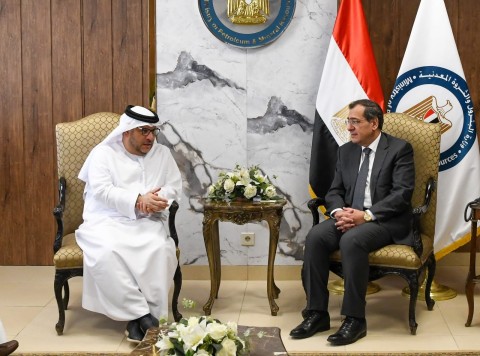The government of the United Arab Emirates is expected to cut spending by 4.2% this year as it begins to retrench because of low oil prices, which are slashing its energy export revenues, a central bank report said on Monday.
The UAE does not regularly reveal consolidated state budget data, and figures released in the quarterly report were the first detailed picture of how authorities in the second biggest Arab economy are responding to cheap oil.
They suggest the UAE is retrenching faster than the majority of wealthy Arab oil exporters in the Gulf. Saudi Arabia and most other countries, with the exception of Bahrain, have said they will keep spending high this year, and in some cases have been running down financial reserves to do so.
The UAE also has huge reserves but it is adopting a more cautious fiscal stance. Consolidated government spending, including the federal government and the UAE’s seven individual emirates, is expected to drop to 460.6 billion dirhams ($125.5 billion) in 2015 from 480.8 billion dirhams in 2014.
This would follow several years in which spending increased at rates of close to 10%. The central bank said its projections were based on a study by the International Monetary Fund, which sent a mission to the UAE in May and June.
The projections show the rise in government spending on employee compensation slowing sharply; such spending would increase only 3.4% in 2015 to 48.8 billion dirhams.
The government expects to save money with big cuts in subsidies, projected to fall 34% to 13.0 billion dirhams, and grants, down 48% to 11.3 billion dirhams.
Meanwhile, low oil prices are expected to slash consolidated government revenue by 22%, leaving a fiscal deficit of 30.6 billion dirhams or 2.4% of gross domestic product. It would be the UAE’s first deficit since 2009, the IMF said.
The UAE has been more daring than other Gulf states in pushing through politically sensitive reforms to curb spending and raise new revenue in an era of cheap oil.
Abu Dhabi, the biggest emirate in the UAE, hiked electricity and water tariffs in January as part of efforts to cut subsidies; last week, the UAE said it would deregulate domestic fuel prices. It is drafting laws to introduce corporate and value-added tax.
Despite the spending cuts, the central bank predicted economic growth would stay strong; it forecast 4.0% growth in 2015, down only moderately from 4.6% last year.
Source: Reuters












